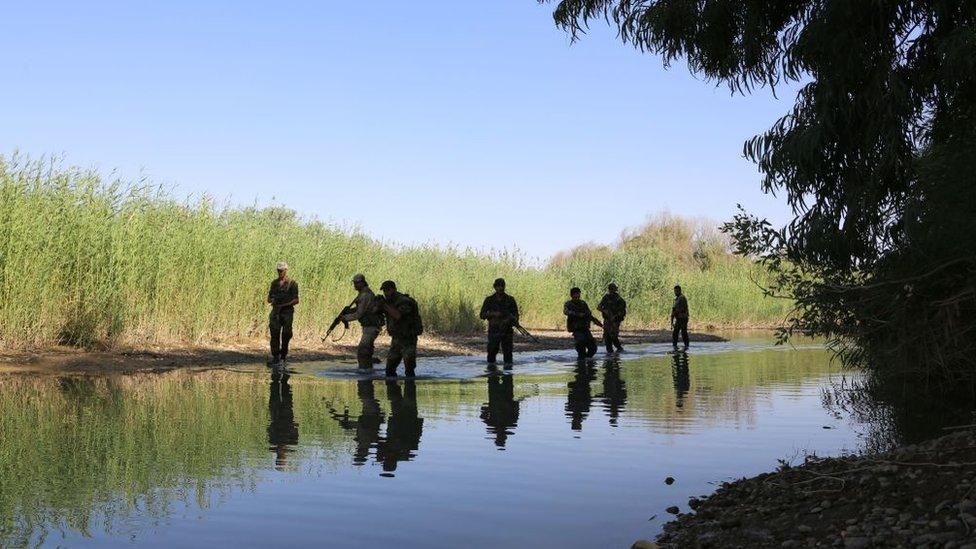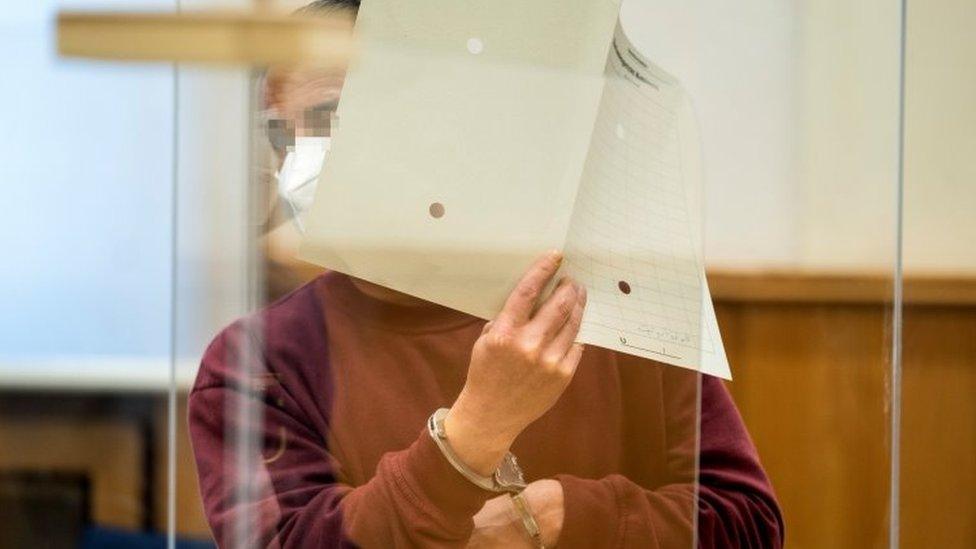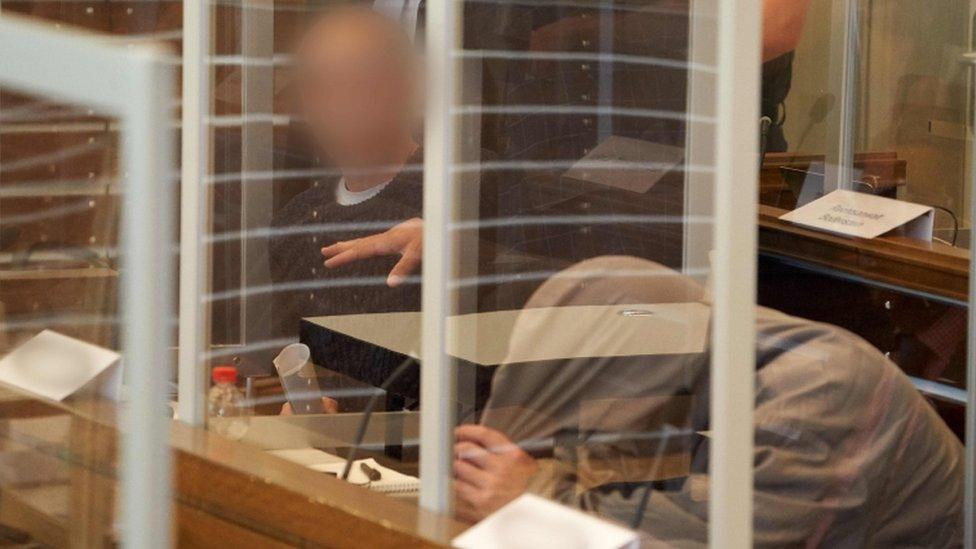Ahmad Al K: Dutch court tries refugee over Syria murder video
- Published

Syrian government forces seen at the Euphrates river in Deir al-Zour province in 2017
A refugee in the Netherlands has gone on trial for war crimes over a killing carried out during the Syrian conflict.
Ahmad Al K, 49, and his family arrived in the Netherlands in 2014.
He was arrested in 2019 after he was identified in a video showing the murder of an unarmed Syrian soldier.
He has admitted being present at the time, but his lawyer argues he wanted to exchange the captive for his brothers, who were being held in government prisons.
Ahmad Al K denies that he took part in the killing under the name of Abu Khuder, allegedly a local leader of the jihadist al-Nusra Front. It is the first trial in the Netherlands involving a Syrian refugee, although cases have been brought in Germany and Sweden.
What is the video evidence?
The footage, which dates back to 2012, shows a captured lieutenant colonel in the Syrian air force being led to the bank of the Euphrates river before he is shot dead.
Although no-one other than the victim is seen, a second video has emerged from German investigators, in which prosecutors allege the defendant is visible.
Following an undercover operation, in which the suspect admitted that his voice could be heard in the execution video, Ahmad Al K was charged with a war crime and terrorism offences, according to Dutch public broadcaster NOS. A witness in Syria also spoke to investigators via Whatsapp.
How accused sought asylum in Netherlands
The defendant told the court on Tuesday that he had fled to Turkey in 2013, arriving in the Netherlands via Greece in April the following year.
He was later joined by his his wife and seven children and even volunteered at a local football club in the south-western town of Kapelle until his arrest in 2019, Dutch reports say. He was given temporary asylum.
The investigation began after German police shared information from witness statements linking him to al-Nusra Front, which was al-Qaeda's affiliate in Syria until 2016.
He told the court on Tuesday he had been living in the eastern town of Mohassen when it was attacked by the Syrian army and he deserted soon afterwards, according to a report from the court in Rotterdam. Dutch investigators say he then set up one of the first battalions of the rebel Free Syrian Army but became disillusioned with the FSA and joined the al-Nusra Front.
In a 2012 interview, a man identified as Abu Khuder spoke to the Guardian newspaper in Mohassen, external, explaining his affiliation to al-Qaeda. He explained how he had deserted the Syrian army to join the FSA but later pledged allegiance to the al-Qaeda affiliate.
How other Syrian refugees have been prosecuted
Earlier this year, a court in the German city of Koblenz sentenced a former Syrian intelligence officer to four-and-a-half years in jail for complicity in crimes against humanity.
The court found that Eyad al-Gharib, 44, had helped to arrest protesters in 2011 who were later tortured and murdered.
The trial of another former Syrian officer, 58-year-old Anwar Raslan, is continuing. He is suspected of involvement in the torture of at least 4,000 people from 2011-12 and faces charges of murder, rape and sexual assault.
Both Gharib and Mr Raslan fled the civil war in Syria and were granted asylum. They were arrested in 2019.
In 2015, a court in Sweden sentenced a former rebel fighter to five years in prison for the "torture-like" assault of a prisoner.
Artist Sami told the BBC's Lina Sinjab of the horror of prison in Syria (video from 2015)
- Published24 February 2021

- Published23 April 2020
